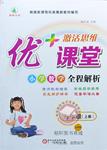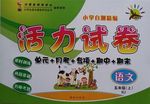Each year, millions of people go abroad to work, study, or travel.It's a great way to find out what life is like in another part of the world! You're probably hoping to make new friends and learn about the culture in your host country everything from attitudes and beliefs to social customs and popular foods.But constantly having to deal with new situations can be frustrating(挫折),even stressful.
Homesickness, stress, fear, and confusion are all symptoms of "culture shock".At first, you may feel like getting on the plane and heading home.It' s OK to have those feelings, but the following are some tips to help you handle the challenges that you will face.
Don't expect to be perfect.You may feel frustrated that you have culture shock, especially since you probably spent so much time preparing for your trip.No matter how much information you read, or how well you speak the host language, it is natural to feel overwhelmed sometimes.If you give yourself some time, things will gradually get easier.
Have an open mind.While it's certainly OK to feel frustration or confusion in your new surroundings, try not to form an opinion about the new culture too soon.Don't think of the host as better or worse, just different—you’ll be more willing to try new things.
Participate.This is obvious, but everybody needs to be reminded.Just watching life go on around you isn't good enough.You really need to try things for yourself.Don't worry about making a mistake; people in your host country will generally be very understanding and willing to help if you have question.Your study abroad experience is a unique and special time in your life, one that you'll never forget.If you follow our suggestions, you'11 be able to handle it well, and have a wonderful time.Good luck!
64.What is culture shock?
A.Something you feel surprised at.
B.The problems you have when you go to another country.
C.The frightening feelings you have.
D.Something different from your own culture.
65.What should you do when you feel depressed?
A.Go back to your own homeland.
B.Talk to someone about your problem.
C.Give yourself some time to get used to it.
D.Stop thinking of it.
66.Which of the following statements is WRONG?
A.It is natural to feel overwhelmed sometimes.
B.Not everything is perfect.
C.Try to form the opinion about the new culture as soon as possible.
D.Tell others about your problems.
67.What is the main idea of this article?
A.How to overcome culture shock.
B.Why do people have culture shock.
C.Who might have culture shock.
D.When will you have culture shock.

 激活思维优加课堂系列答案
激活思维优加课堂系列答案 活力试卷系列答案
活力试卷系列答案 课课优能力培优100分系列答案
课课优能力培优100分系列答案